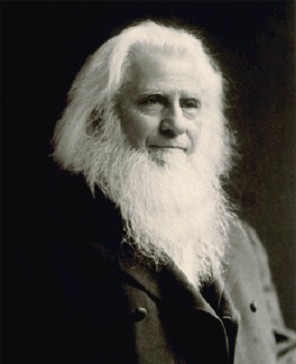Thomas Bramwell Welch facts for kids
Thomas Bramwell Welch (born December 31, 1825, died December 29, 1903) was a Methodist minister and a dentist. He was born in Britain but became an American citizen.
He found a way to stop grape juice from turning into alcohol. He used a method called pasteurization. This process heats liquids to kill germs and prevent them from spoiling.
Welch convinced churches to use this non-alcoholic grape juice for their services. He called it "Dr. Welch's Unfermented Wine." The company he started is now famous as Welch's.
Contents
Early Life and Moving to America
Thomas Welch was born in Glastonbury, England, on December 31, 1825. His family moved to the United States in 1834. He went to public schools in Watertown, New York.
When he was 17, Thomas joined the Wesleyan Methodist Church. This church was founded in the same year, 1843.
From the start, the Wesleyan Methodist Church strongly opposed two main things:
- Making, buying, selling, or using alcoholic drinks.
- Owning, buying, or selling enslaved people.
The church's rules clearly stated that only non-alcoholic grape juice should be used for Communion. This rule was made about 25 years before Welch used pasteurization. This shows that other ways existed to keep grape juice from fermenting. For example, people could boil raisins or add special ingredients.
Helping the Underground Railroad
During his late teenage years, Welch was very active in the Underground Railroad. This was a secret network that helped enslaved people escape from the southern states to Canada. Many members of the Wesleyan Methodist Church helped with the Underground Railroad.
By age 19, Thomas Welch finished his studies at Gouverneur Wesleyan Seminary. He then became an ordained Wesleyan Methodist minister. He first served as a minister in Pound Ridge, New York. Later, he moved to Herkimer County, New York.
While in Herkimer County, he married Lucy Hult. They had seven children together. Two of their children, Charles E. Welch and Emma C. Welch Slade, both became dentists.
New Career Paths
Welch continued his ministry work until his voice became too weak. He then had to find other jobs. He studied at New York Central Medical College in Syracuse. He became a physician in Penn Yan, New York.
In 1856, Welch moved to Winona, Minnesota. There, he changed his job again and became a dentist.
In 1864, the Methodist Episcopal Church suggested using "pure juice of the grape" for Communion. In 1865, Welch moved to Vineland, New Jersey, where his sister lived. He joined the Vineland Methodist Episcopal Church.
In 1869, Welch invented his special method. He used pasteurization to stop grape juice from fermenting. This made the drink non-alcoholic. He convinced local churches to use his "Dr. Welch's Unfermented Wine" for their services.
Dentistry and Grape Juice Business
Thomas Welch continued to work as a dentist in Vineland until 1880. He had a very successful dental practice during this time.
His son, Charles E. Welch, was also a dentist. Charles returned to Vineland, New Jersey, in 1875. He later moved his dental practice there. By this time, Thomas Welch was very busy working to stop the sale of alcoholic drinks. He had almost stopped his experiments with grape juice.
Thomas told Charles, "Don't think I'm trying to stop you from selling grape juice. It's good for you to do it, as long as it doesn't get in the way of your dental work or your health."
Charles and Thomas Welch started the Welch's Dental Supply Company in Philadelphia. They also began publishing a dentistry magazine. Charles worked hard to sell and promote grape juice. At first, the Welches sold grape juice as a side business. The grape juice industry grew slowly until 1890.
After 1890, the Welches could focus more on the grape juice business. Charles didn't fully focus on selling grape juice until 1893. That's when the Welch's Grape Juice Company officially began. However, Thomas Welch himself never made any money from his original idea.
Welch was a strong supporter of prohibition. This was a movement to reduce or stop the sale of alcoholic drinks. He actively worked for this cause in New Jersey and nearby areas.
Later Life and Passing
After his first wife passed away, Thomas Welch married Victoria C. Sherbume in 1895.
Thomas Welch died on December 29, 1903, in Vineland. He is buried in the Siloam Cemetery there.
 | James Van Der Zee |
 | Alma Thomas |
 | Ellis Wilson |
 | Margaret Taylor-Burroughs |


